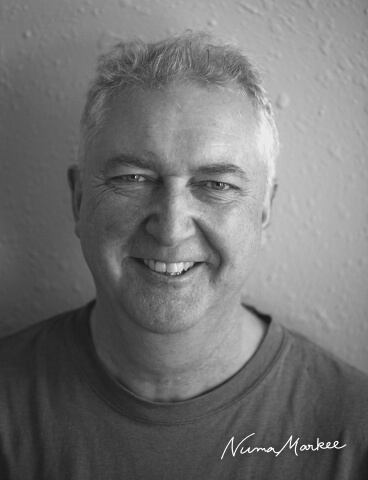About

Numa Markee is a research associate professor at the University of Illinois at Urbana-Champaign
Between 1988 and 2000, he became well-known for his early work on how the planned curricular innovation of task-based language teaching was implemented in different parts of the world. Between 1994 and 2000, he then became interested in another aspect of educational implementation, namely what happens at the methodological level of spontaneous interactions in second language classrooms. In this context, he was one of the first researchers to use the qualitative methods of ethnomethodological conversation analysis to study second language learning processes. This innovation, which occurred in the mid 1990s, contributed significantly to the broader, emerging social critique of cognitive second language acquisition research, whose intellectual domination of the field also reached its peak at about the same time. Over the next fifteen years or so, this challenge to cognitive orthodoxy gained increasing traction and, by about 2012, this social approach to second language learning—that is now known as conversation analysis-for-second language acquisition (CA-for-SLA or CA-SLA)—had (to the dismay of some) undeniably gained a permanent seat at the second language acquisition table.
In CA-SLA, Markee is best known for his pioneering work on second language classroom research. His research program in this area focuses generally on how teachers and students modify the norms of ordinary conversation to achieve institutional agendas, roles, and identities as they engage in various naturally occurring language learning/teaching behaviors in real time. Specifically, he is particularly interested in understanding how socially distributed cognition and planning on-the-fly work as locally occasioned achievements in the classroom. Finally, to understand how participants competently perform such work, he is also interested in using multimodal conversation analysis to document and explicate the astounding complexity of multi-semiotic analyses of classroom interactions. His current projects build on these long-standing interests. They include synthesizing his early research on the management of curricular innovation with his later work in CA-SLA; trying to solve the transcription bottleneck problem in CA; conducting a longitudinal project on the acquisition of colloquial Arabic; and—expanding his work to include another institutional context—analyzing how archeologists and historians who host documentaries for the lay public on British television incidentally display their own professional expertise as they interview other experts in their disciplines.
In addition to writing many refereed articles and book chapters, he has written two single authored books (Managing Curricular Innovation, Cambridge University Press, 1997, and Conversation Analysis, Lawrence Erlbaum, 2000). He has also solo edited the Handbook of Classroom Discourse and Interaction (Wiley-Blackwell, 2015) and co-edited Conversation Analysis and Language Alternation, (Anna Filipi and Numa Markee, (Eds.) 2018, John Benjamins); and Conversation Analytic Research on the Classroom: Theory and Practice (Silvia Kunitz, Numa Markee, and Olcay Sert (Eds.), 2021, Springer).
He has taught ESL/EFL in Switzerland (Geneva), Algeria (Oran), the United Kingdom (London), the United States (Los Angeles, CA and Urbana, IL), Mexico (Mexico City) and the Sudan (Khartoum). In this last country, he was employed by the British Council from 1981-1983 as a Key English Language Teaching (KELT) officer to work on a British government-funded international aid project. This project focused on developing English for Specific Purposes teaching materials for the College of Engineering at Khartoum Polytechnic and providing teacher training workshops for Voluntary Service Overseas volunteers in the Sudan. More recently, he has also worked as an English Language Specialist for the US Department of State, for which he conducted consultancies on ESL curriculum design and methodology in Chile (2008), Brazil, Nepal, India, Thailand (2015), Laos (2015) and Thailand (2024). For this last consultancy, he co-organized the First International Conversation Analysis Research and Development Innovations in Thailand (CARDIT) Symposium, which was held in Krabi, Thailand, April 22-24, 2024.
Finally, in order of acquisition, he speaks French, Italian and English with native-like proficiency, and is a very fluent speaker of Mexican Spanish. Lastly, he still has a low-beginner level of proficiency in the kind of Colloquial Sudanese Arabic spoken in Khartoum, the capital of the Sudan.